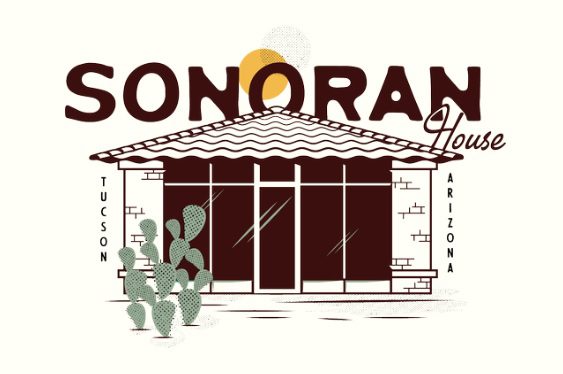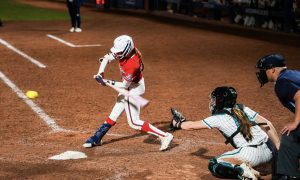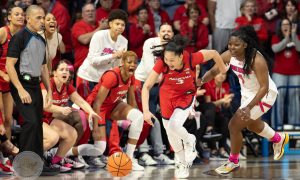AllSportsTucson.com is running a series looking at each basketball recruiting class starting with the Fred Snowden era with a look also at the Lute Olson and Sean Miller classes. Snowden, Olson and Miller have coached at Arizona in 46 out of the last 48 seasons, a period of time when the Wildcats started to gain a national presence. Our first installment in the series is a look at the 1972 class under Snowden.
A common theme has developed among Arizona’s top basketball recruiting classes, starting with the Fred Snowden era in 1972.
Sean Miller attracted a credible recruiting class in the few weeks after his hire in April 2009. Derrick Williams, Solomon Hill, Kevin Parrom, Lamont “MoMo” Jones and Kyryl Natyazhko provided the program immediate hope after two years of uncertainty with interim coaches during Lute Olson’s leave of absence and retirement saga.
The late Snowden, nicknamed “The Fox” for his smooth play in the infield when he played baseball as a youth, and Olson also amassed one of their best classes in the first few weeks after their hire.

— Fred Snowden era (1972-82)
— Lute Olson era (1983-2007)
— Sean Miller era (2009-present)
Snowden’s first recruiting class included legendary players such as Eric Money, Coniel Norman, Al Fleming, Jim Rappis and Ron Allen. They had the nickname “The Kiddie Korps” for how much Money, Norman, Fleming and Rappis impacted the program as freshmen. Allen was a JC transfer.
Olson’s initial class featured a who’s who of Arizona basketball — Steve Kerr, Pete Williams and Eddie Smith.
These first-year classes for Snowden, Olson and Miller helped develop runs for each coach to at least the Elite Eight of the NCAA tournament after the program endured turbulence before each of their hires.
This series will involve segments starting with the start of the Snowden era in 1972-73. It will be completed after analyzing Miller’s recent Class of 2020 effort.
Head coach: Fred Snowden
CLASS of 1972
- G Ron Allen, Neosho County (Kan.) JC
- F Al Fleming, Michigan City (Ind.) Elston HS
- F John Irving, Wilmington (Del.) Howard HS
- G Eric Money, Detroit Kettering HS
- G Coniel Norman, Detroit Kettering HS
- G Jim Rappis, Waukesha (Wis.) HS
- F Jim Wakefield, Aurora (Colo.) JC
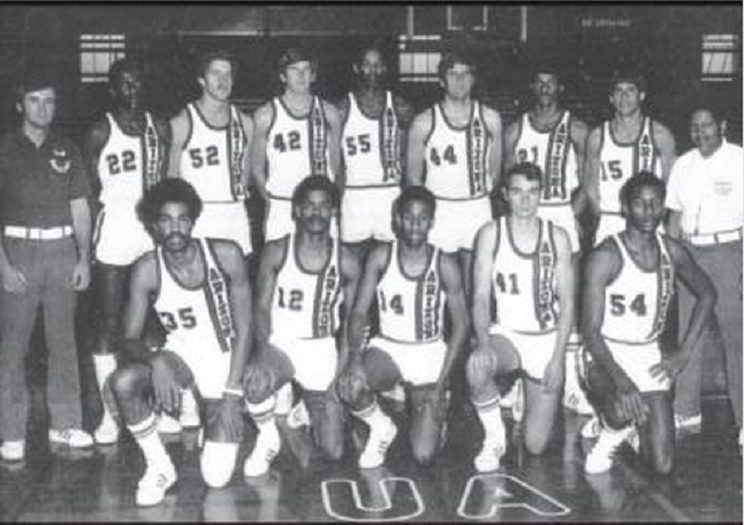
Developments: John Irving transferred after his freshman season to Hofstra. He became the nation’s leading rebounder in 1974-75. Snowden’s recruiting ties to Detroit as a Michigan assistant before arriving in Tucson in 1972 enabled him to bring Eric Money and Coniel Norman with him. Money, Norman, Al Fleming and Jim Rappis (all standout recruits from Big Ten country) are the best foursome in a class for the Wildcats based on pure talent. Fleming and Rappis were essential to Arizona’s Elite Eight appearance in 1976. Ron Allen, Norman and Money became tri-captains in 1973-74. Money and Norman declared hardship for the NBA draft after two years at Arizona.
NBA draft picks (4): Money (1974/second round/33rd pick/Detroit), Norman (1974/third round/37th pick/Philadelphia), Fleming (1976/second round/30th pick/Phoenix) and Rappis (1976/fifth round/Milwaukee).
All-conference selections (2): Norman (1972-73 and 1973-74 in WAC) and Fleming (1974-75 and 1975-76 in WAC).
Conference players of the year: None.
All-Americans: None
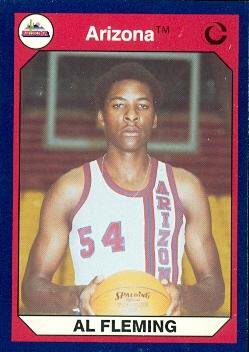
Notable: Arizona branched out its recruiting effort significantly across the nation, especially in the Midwest with Snowden’s ties there. Recruiting was much more regionalized under previous coach Bruce Larson. Snowden grew up in Detroit, went to high school there and met his wife Maya while attending Wayne State in Michigan. He coached at the high school level in Michigan before serving as an assistant at Michigan under Dave Strack and Johnny Orr. After Strack was hired as Arizona’s athletic director, he brought Snowden on board as the first black head coach of a major college program. … Snowden beat Big Ten schools for Norman and Money out of Detroit’s Kettering High School and Fleming was bound for Louisville before Snowden made a last-ditch effort. “We’re going after the same blue-chippers that all the top basketball schools are after,” Snowden told the Tucson Citizen. … The first name of Fleming’s mother was “Arizona.” Fleming, who passed away at age 49 in 2003 from cancer, became enamored with Snowden after visiting Tucson for the first time on a recruiting trip. “Coach Snowden is something else,” Fleming told the Citizen. “He was the first coach who not only told me what I was going to be able to do, but what I have to do. He told me if I was not in class, he was going to personally kick me out of bed and get me there.” … Money averaged 18.6 points a game, the sixth-best mark in program history. Norman, nicknamed “Popcorn” for his ability to heat up and make outside shots, scored 23.9 points a game for his career — without a 3-point line and shot clock — the highest average of any Wildcat. … Fleming remains Arizona’s career rebounding leader (1,190) and he also had the career scoring record at 1,765 points before it was broken. … Rappis earned the nickname “Guts” for how he persevered through injuries his whole career. He fractured an ankle as a freshman and still managed to play nine games afterward. He suffered a ruptured appendix at the beginning of his sophomore year and had a series of ankle injuries but still played in 24 of 26 games. Another ankle injury when he was a junior forced him to use a cane off the court throughout the season. He underwent surgery to correct a spinal disc injury before the 1975-76 season and was in grave danger of losing his life when he contracted peritonitis (inflammation of a thin layer of tissue inside the abdomen, caused by bacteria or fungus). In the 1976 West Regional Semifinal against UNLV, Rappis injured his left heel with 5:57 left in the first half but continued to play despite being hobbled throughout. He finished with 24 points and 12 assists against the Running Rebels. His 12 assists were more than what UNLV produced as a team.

Quotable:
“Some of our success that first year was because Fred was the first black coach of a school in a major college conference (WAC). I sold that,” said former assistant Jerry Holmes, who was hired by Snowden as an assistant sight unseen in Los Angeles at the 1972 Final Four.
Holmes, who was coaching at NAIA school Bethel (Tenn.) College, was referred to Snowden by Hall of Fame coach John McClendon during that Final Four. McClendon met Holmes when Bethel played against McClendon’s Kentucky State team in 1966 and they struck a friendship. Snowden met Holmes at his hotel room and told Holmes he had only 15 minutes to talk before meeting his brother for dinner. They wound up meeting for two hours and Snowden offered him the position. That was a significant development in the evolution of Arizona basketball on a national scale because Holmes was Snowden’s primary recruiter in Snowden’s first two years as head coach.
“Fred did not like to fly and it was hard for him to get on a plane,” said Holmes, who is 79 and retired in Tucson. “So I did most of the recruiting. Before I got to Tucson, he told me, ‘This is what I want you to do: I want you to go to Detroit (Money and Norman) — this is me driving around there — and then go to Michigan City, Ind., (Fleming) and then head to Waukesha, Wis. (Rappis).’ I’m driving in a car with no air conditioning in May.
“After all that, I finally pull into Tucson at the 7-Eleven on Speedway by the university. I get out of the car and it’s hot. I asked the guy who worked there pumping gas for people if it’s always this hot. He said ‘Sonny boy, just wait until August — the lizards will be lined up outside of Dairy Queen.’ That’s how everything started. It was amazing.”
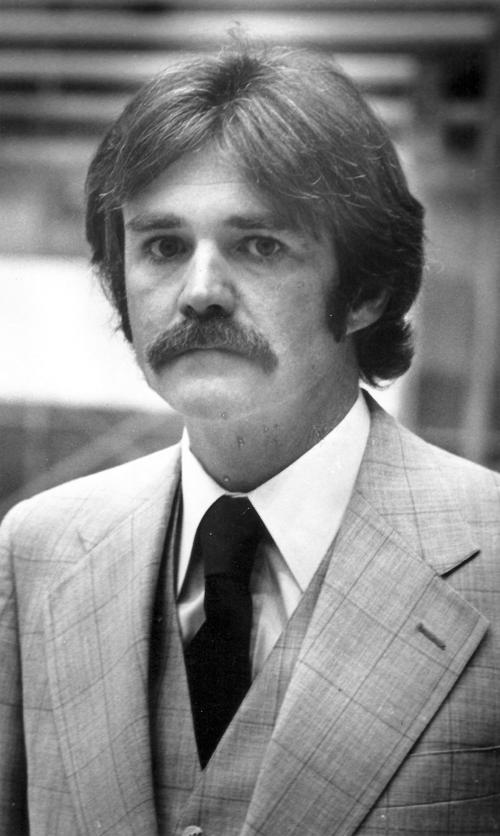
Arizona legend Bob Elliott, who was recruited out of Ann Arbor, Mich., in Snowden’s second year, said freshmen becoming eligible for the first time in 1972-73 enabled Money, Norman and Fleming to have an immediate impact.
“That was a huge ruling when you think about how things changed for Arizona,” Elliott said. “With Corn (Norman), I think he averaged 23.9 points in the first year and 24.2 in the second year with no 3-point line and he literally shot nothing but 3’s.
“What Corn, Eric Money and Al Fleming did that first year set the table. It helped make me want to come out here and make history.”
Holmes said his favorite recruiting story is when he was in Fleming’s living room with Snowden and they were waiting to meet Fleming’s mom.
“We were looking up at the wall and there’s pictures of Jesus Christ, John F. Kennedy and Martin Luther King. I told Fred, ‘We’re in the right spot,'” Holmes said. “So Al goes and gets his mom. … Her first name was Arizona … I looked up at the wall at the picture of Jesus Christ and I thought he winked at me. I thought, ‘Oh my God, we’re going to get this kid.'”
School records set in 1972-73:
- Norman had five games with at least 30 points.
- Norman averaged 24.0 points a game while making 242 field goals.
- His 576 points set a season record.
- Arizona scored 100 points in three consecutive games.
- Arizona finished 16-10 in 1972-73, the highest win total for a first-year coach in school history, of which Miller tied in 2009-10 with a 16-15 record.
Comment: The class had four NBA draft picks. It included one of Arizona’s best backcourts (Money and Norman), top rebounders (Fleming) and most productive leaders (Rappis) in the history of the program. As seniors, Rappis and Fleming helped lead the Wildcats to their first Elite Eight appearance in 1975-76. This class deserves a rating of 10 out of 10 for what it meant historically to Arizona’s program.
FOLLOW @JAVIERJMORALES ON TWITTER!
ALLSPORTSTUCSON.com publisher, writer and editor Javier Morales is a former Arizona Press Club award winner. He is a former Arizona Daily Star beat reporter for the Arizona basketball team, including when the Wildcats won the 1996-97 NCAA title. He has also written articles for CollegeAD.com, Bleacher Report, Lindy’s Sports, TucsonCitizen.com, The Arizona Republic, Sporting News and Baseball America, among many other publications. He has also authored the book “The Highest Form of Living”, which is available at Amazon.


